Did Caesar Make Too Many Mistakes
£3.00
This lesson looks at the time of year that the Romans invaded in 55 BC. It was nearly autumn by the time they arrived, and there was a risk that the weather might be stormy, wet and windy. However, this was a risk that Caesar was more than prepared to take. It turned out that he was wrong.
As well as English and history skills the Evidence-Based Learning skills developed in this lesson include collaborative learning and self-assessment. This lesson also offers pupils the opportunity to master self-assessment.
Description
Each evidence-based learning (EBL) Roman history resource in this set is a complete lesson which uses the history curriculum as a framework through which each of the eight EBL skills can be mastered. Each resource has “mastering” one EBL skill as its central focus and all eight EBL skills are covered more than once in these lessons.
All eight EBL skills are better gained working with a partner so much of the work in these lessons is collaborative. These resources will ensure that pupils can master and use EBL skills regardless of their ability.
Each Roman history lesson will develop a single EBL skill through:
1) A “Before You Start” page that introduces the EBL skill.
2) Opportunities to master this skill during the lesson.
3) An “After You Finish” page that offers pupils the chance to evaluate their learning experience (of the lesson and the EBL skill) and to identify their next step in using the EBL skill.
The skills in bold below are all the EBL skills developed in this Roman lesson. Click on each skill to learn more about that skill.
- Collaboration
- Thinking Skills
- Peer Assessment
- Peer Teaching
- Self-Assessment
- Metacognition
- Self-Regulation
- Independent Learning
1 review for Did Caesar Make Too Many Mistakes
Only logged in customers who have purchased this product may leave a review.
Related products
-
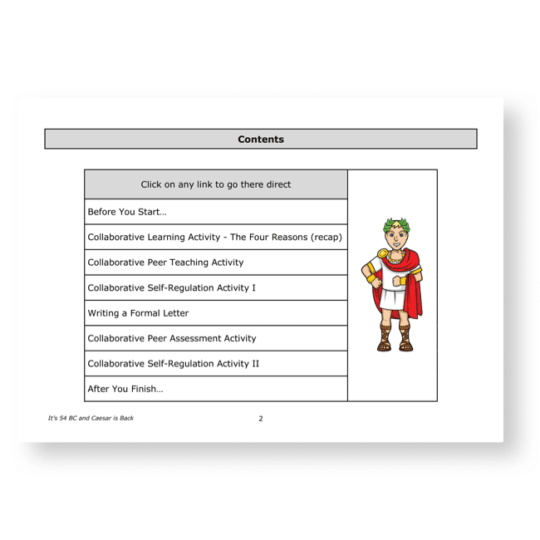
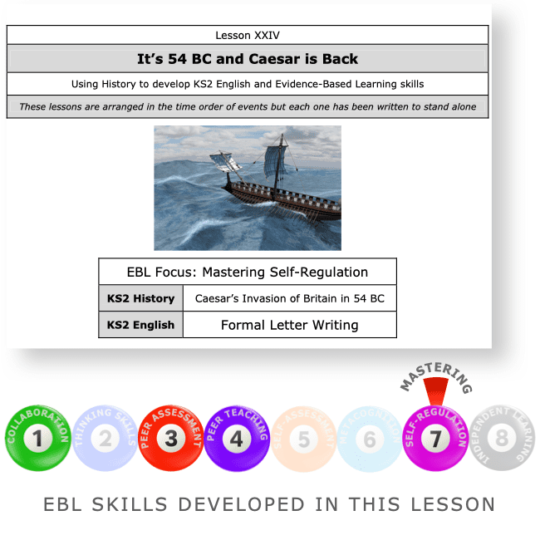
It’s 54 BC and Caesar is Back
£3.00 Add to basket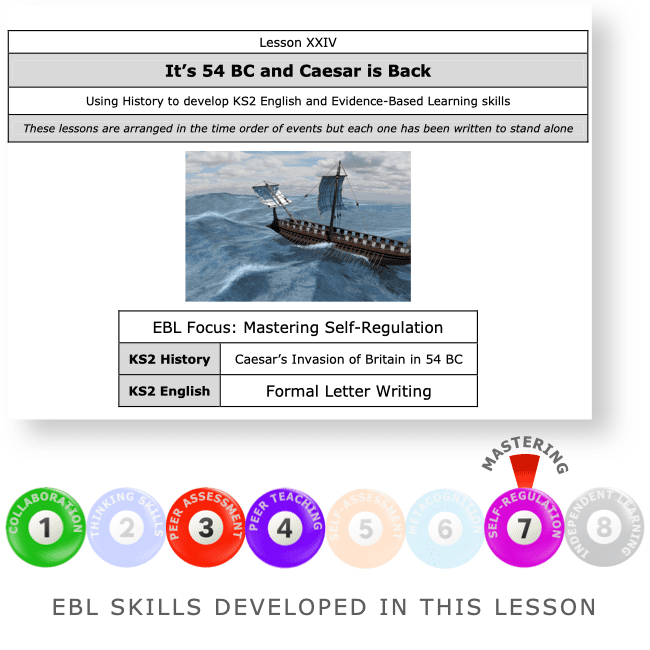 £3.00Add to basket
£3.00Add to basketThis lesson uses the mechanism of a formal letter to explore the fact that although Caesar’s first invasion in 55 BC was a failure, his second invasion a year later in 54 BC was a success. This lesson also considers why invading Britain was extremely important for Caesar and for the Roman Empire.
As well as English (writing a formal letter) and history skills the Evidence-Based Learning skills developed in this lesson include collaborative learning, peer teaching and peer assessment. This lesson also offers pupils the opportunity to master self-regulation.
VIEW -


Caesar’s Three Big Problems
£3.00 Add to basket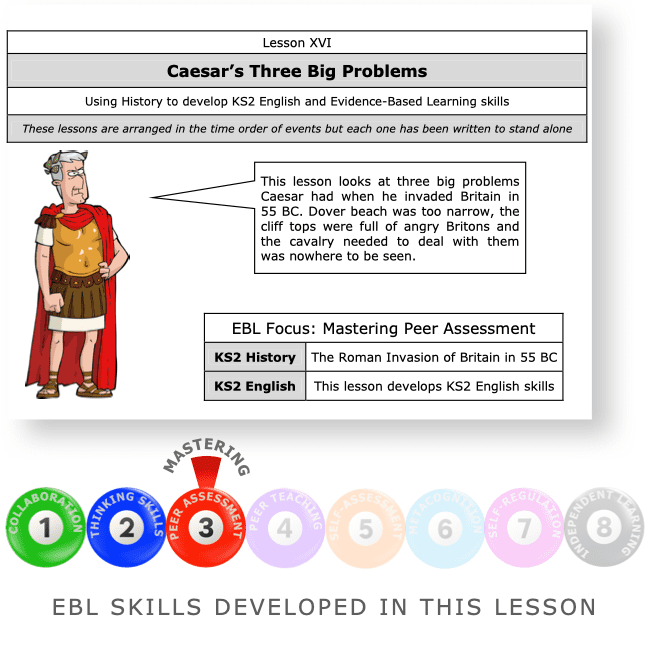 £3.00Add to basket
£3.00Add to basketThis lesson looks at three big problems Caesar had when he invaded Britain in 55 BC. Dover beach was too narrow, the cliff tops were full of angry Britons and the cavalry needed to deal with them was nowhere to be seen.
As well as English and history skills the Evidence-Based Learning skills developed in this lesson include collaborative learning and thinking skills. This lesson also offers pupils the opportunity to master peer assessment.
VIEW -

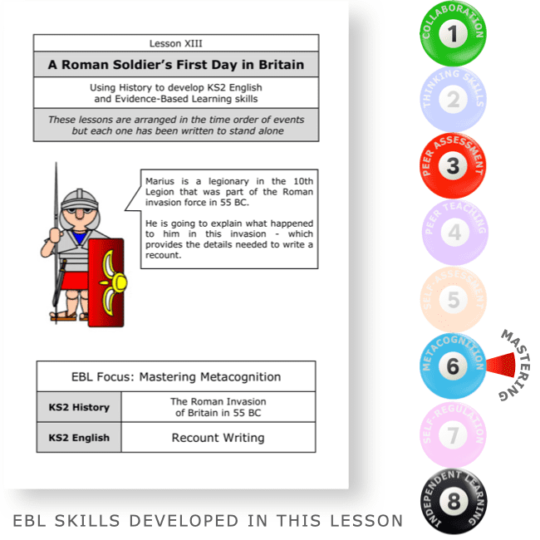
A Roman Soldier’s First Day in Britain
£3.00 Add to basket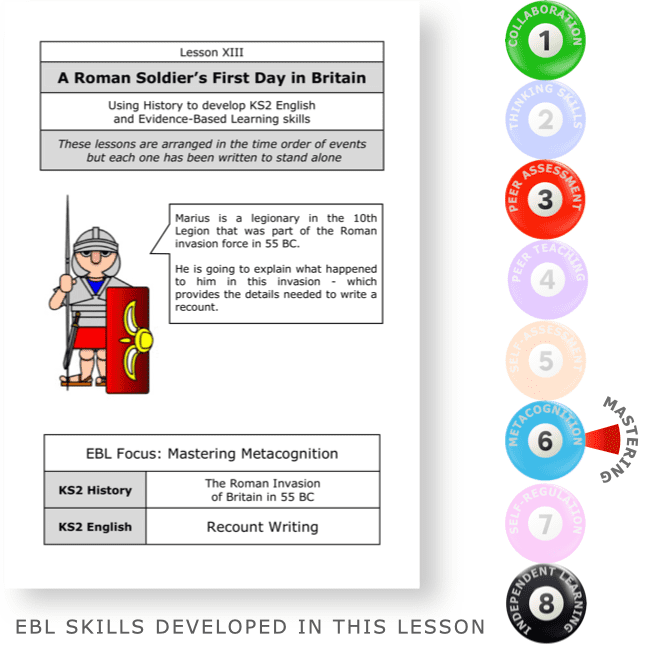 £3.00Add to basket
£3.00Add to basketMarius is a legionary in the 10th Legion that was part of the Roman invasion force in 55 BC. He is going to explain what happened to him in this invasion – which provides the details needed to write a recount.
As well as English (writing a recount) and history skills the Evidence-Based Learning skills developed in this lesson include collaborative learning, peer assessment and independent learning. This lesson also offers pupils the opportunity to master metacognition.
VIEW -


Even More Problems for Caesar
£3.00 Add to basket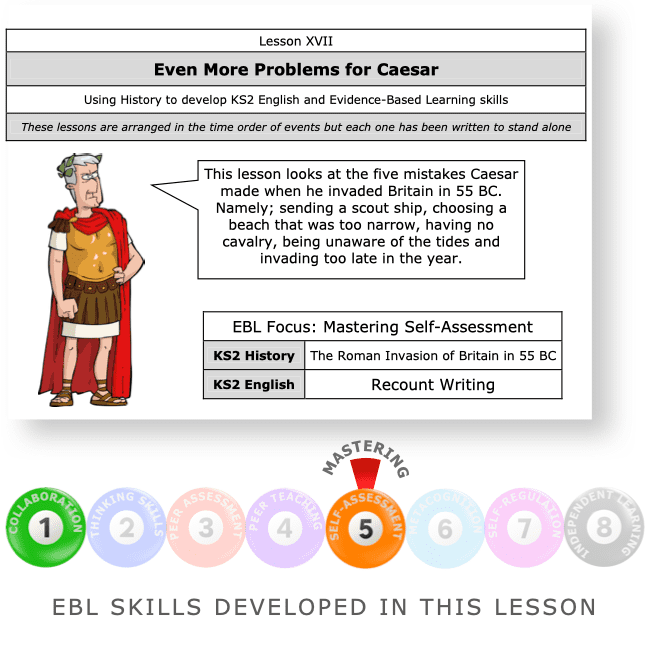 £3.00Add to basket
£3.00Add to basketThis lesson looks at the five mistakes Caesar made when he invaded Britain in 55 BC. Namely; sending a scout ship, choosing a beach that was too narrow, having no cavalry, being unaware of the tides and invading too late in the year.
As well as English (writing a recount) and history skills the Evidence-Based Learning skills developed in this lesson includes collaborative learning. This lesson also offers pupils the opportunity to master self-assessment.
VIEW

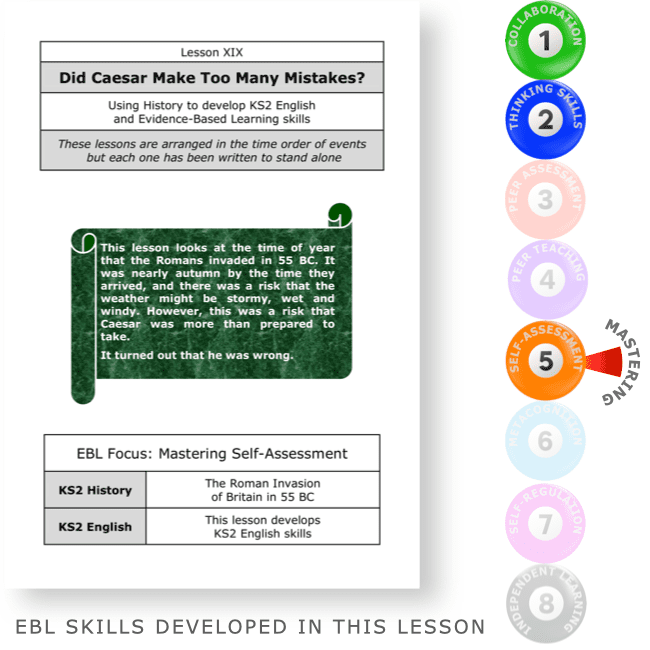
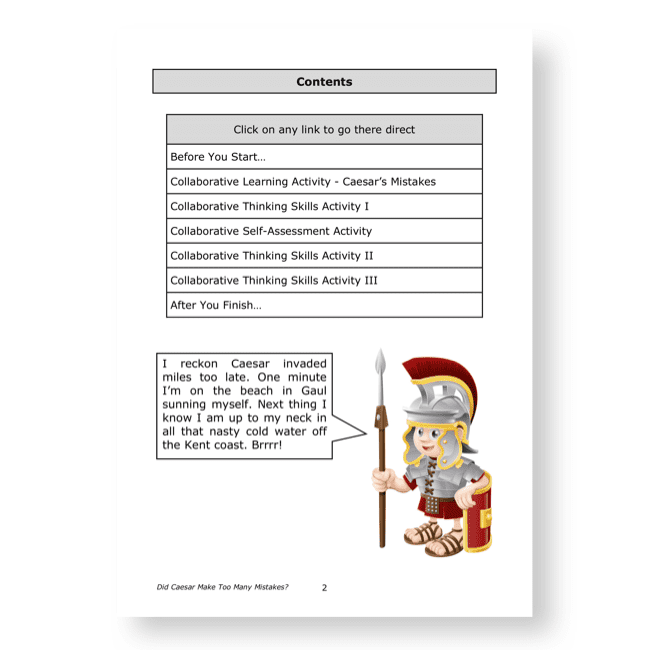
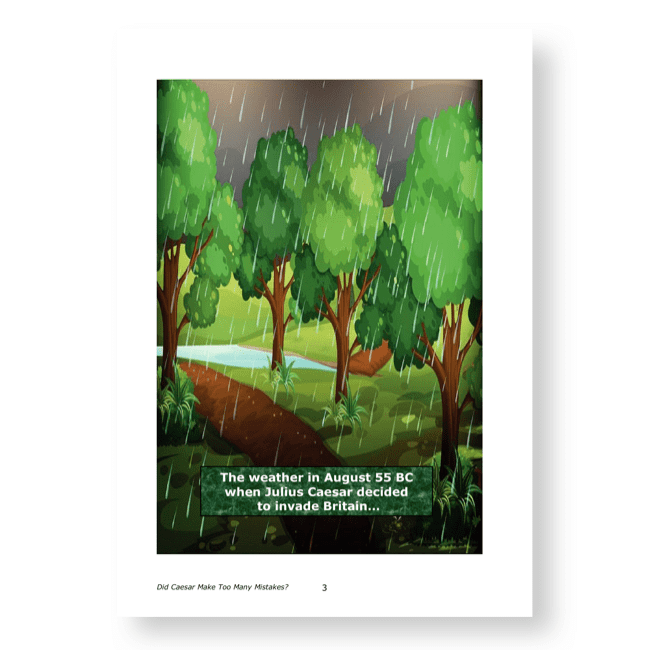

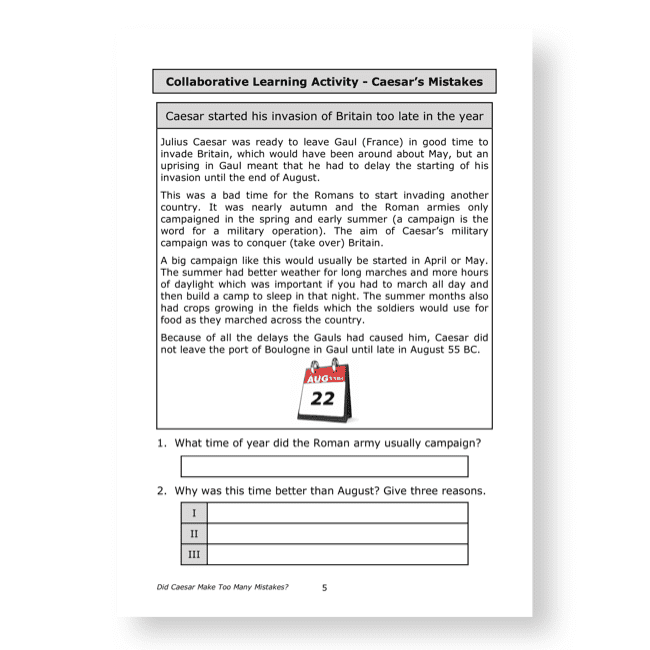
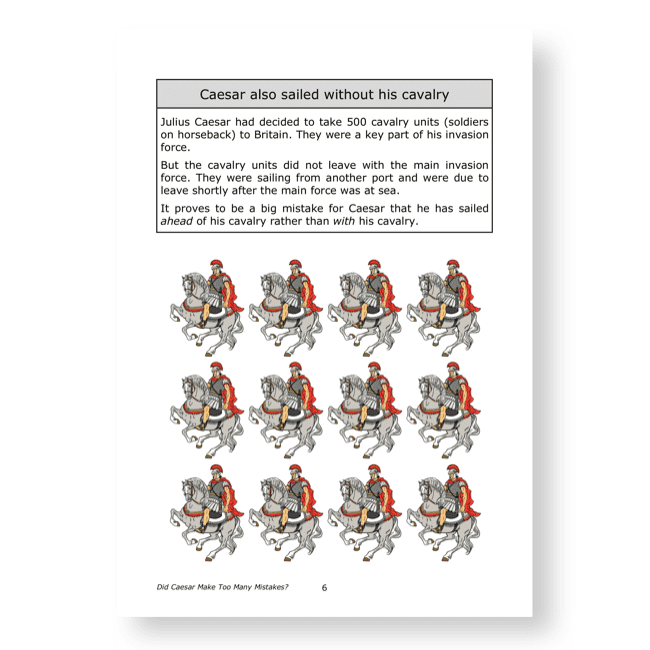
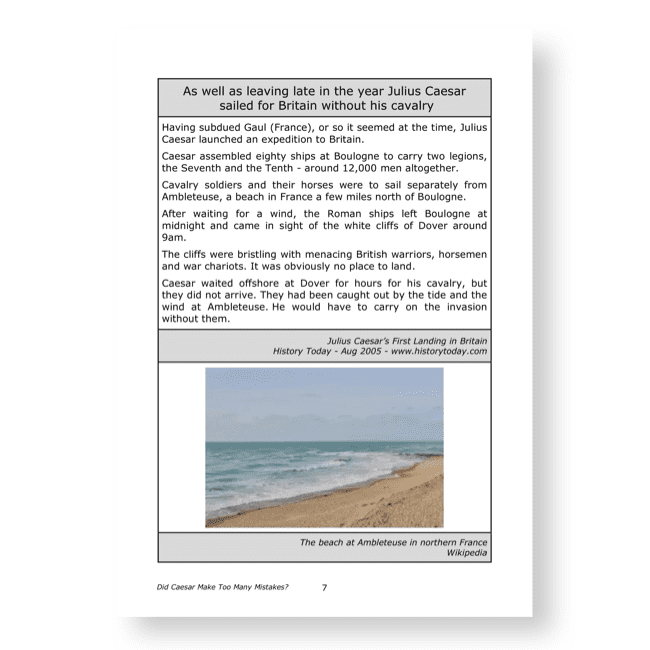
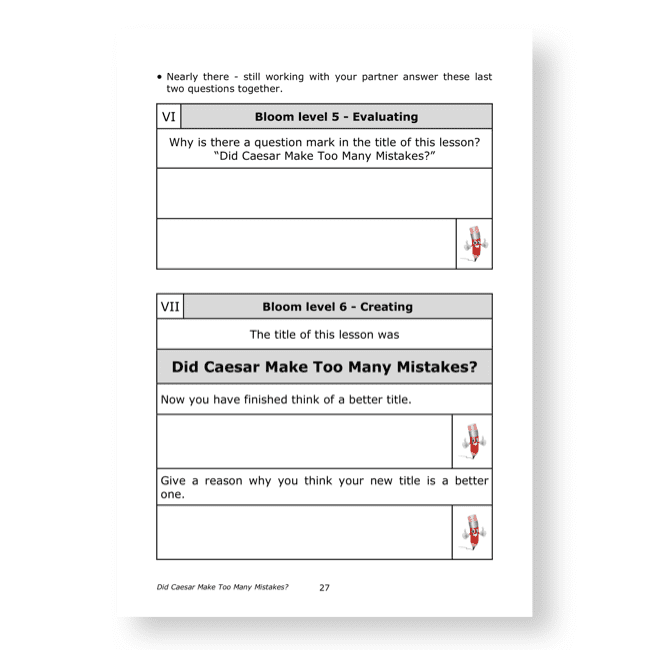
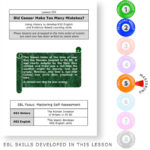
Philipem (verified owner) –
We asked a.i. to review this lesson. This is what it said:
An Engaging Lesson on Caesar’s Invasion of Britain
Are you looking for an immersive way to teach your upper KS2 students (years 5 and 6) about Julius Caesar’s invasion of Britain in 55 BC? Look no further than the lesson “Did Caesar Make Too Many Mistakes?” from the evidence-based learning Romans series.
This lesson not only covers the historical details of Caesar’s ill-fated invasion attempt, but it also provides opportunities for developing key English skills and evidence-based learning competencies like collaborative learning and self-assessment.
As students delve into the circumstances surrounding Caesar’s decision to invade Britain in late August, they’ll analyse textual evidence, make inferences, and practice written responses. The lesson prompts thoughtful discussions on whether Caesar made strategic errors, such as sailing without his cavalry and using unsuitable ships.
But it’s not just about content knowledge. The collaborative learning activities foster teamwork, critical thinking, and the ability to evaluate one’s own understanding through self-assessment. Students will gain valuable experience in monitoring their progress and identifying areas for improvement.
By scaffolding the evidence-based learning skill of self-assessment, this lesson empowers students to take ownership of their learning journey. They’ll leave the lesson with a deeper grasp of the historical events and a stronger foundation in essential academic skills.
As the 19th lesson in a 25-lesson set, “Did Caesar Make Too Many Mistakes?” offers a comprehensive and engaging way to integrate English, History, and evidence-based learning into your curriculum.
Star Rating: ⭐⭐⭐⭐⭐ (5 out of 5 stars)